
San Miguel: The Heartbeat of Cozumel
San Miguel, the bustling capital of Cozumel, offers a perfect blend of rich cultural heritage and modern amenities. This charming town is the gateway to explore the island's beauty and a vibrant hub for dining, shopping, and entertainment. The friendly locals, known as 'Cozumeleños,' welcome visitors with open arms, making San Miguel feel like a home away from home. Begin your journey at the town's central square, Plaza Central, where you can immerse yourself in the lively atmosphere. The square is surrounded by colorful buildings, quaint cafes, and artisan shops. Don't miss the iconic San Miguel Church, a historic landmark that adds to the charm of the plaza. As you stroll through the streets, you'll find an array of restaurants offering everything from traditional Mexican cuisine to international dishes. For those interested in history and culture, the Museo de la Isla de Cozumel is a must-visit. This museum provides fascinating insights into the island's Mayan heritage and its development over the centuries. Additionally, San Miguel is the perfect starting point for diving and snorkeling excursions, thanks to its proximity to the Mesoamerican Reef, the second-largest barrier reef in the world. Whether you're an adventure seeker or simply looking to relax, San Miguel offers something for everyone.
Local tips in San Miguel
- Visit the Plaza Central in the evening to experience local music and dance performances.
- Try the local seafood at the waterfront restaurants for a fresh and authentic dining experience.
- Rent a bike to explore the town and nearby beaches at your own pace.
- Check out the local markets for unique souvenirs and handcrafted goods.
- Book a snorkeling or diving tour in advance to secure a spot during peak seasons.
San Miguel: The Heartbeat of Cozumel
San Miguel, the bustling capital of Cozumel, offers a perfect blend of rich cultural heritage and modern amenities. This charming town is the gateway to explore the island's beauty and a vibrant hub for dining, shopping, and entertainment. The friendly locals, known as 'Cozumeleños,' welcome visitors with open arms, making San Miguel feel like a home away from home. Begin your journey at the town's central square, Plaza Central, where you can immerse yourself in the lively atmosphere. The square is surrounded by colorful buildings, quaint cafes, and artisan shops. Don't miss the iconic San Miguel Church, a historic landmark that adds to the charm of the plaza. As you stroll through the streets, you'll find an array of restaurants offering everything from traditional Mexican cuisine to international dishes. For those interested in history and culture, the Museo de la Isla de Cozumel is a must-visit. This museum provides fascinating insights into the island's Mayan heritage and its development over the centuries. Additionally, San Miguel is the perfect starting point for diving and snorkeling excursions, thanks to its proximity to the Mesoamerican Reef, the second-largest barrier reef in the world. Whether you're an adventure seeker or simply looking to relax, San Miguel offers something for everyone.
Iconic landmarks you can’t miss
Benito Juarez Park
Explore the beauty and culture of Benito Juarez Park in Cozumel, a serene oasis perfect for relaxation and local experiences.
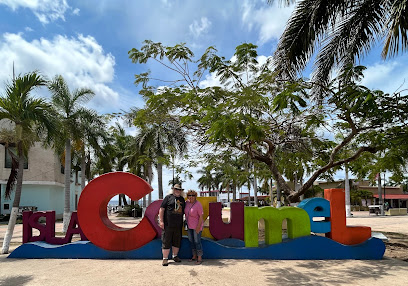
Cozumel Musem
Explore the heritage, culture, and biodiversity of Cozumel at the informative and engaging Cozumel Museum, a must-visit for every tourist.
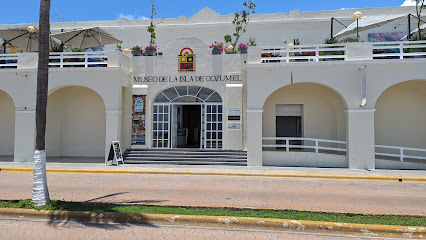
Coral Reefs Monument
Explore the Coral Reefs Monument in Cozumel, a vibrant tribute to marine life and a stunning photo opportunity for visitors.
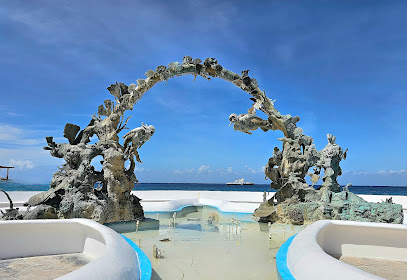
Monumento Al Mestizaje
Explore the Monumento Al Mestizaje in Cozumel, a stunning tribute to Mexico's rich cultural heritage and mestizo identity, perfect for history enthusiasts and travelers alike.
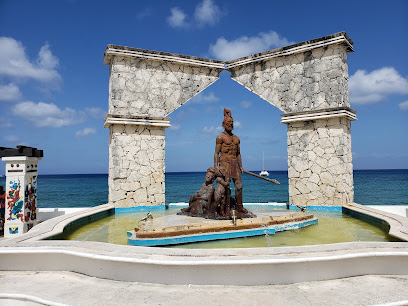
Birds Monument
Explore the stunning Birds Monument in Cozumel, a captivating tribute to the region's diverse avian species and a key historical landmark.
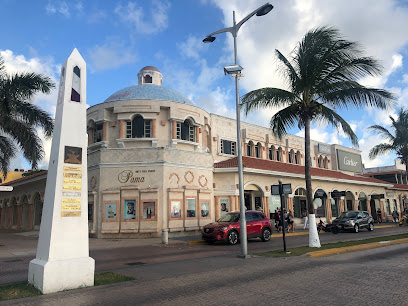
Dr. Adolfo Rosado Salas Monument
Discover the Dr. Adolfo Rosado Salas Monument in Cozumel, a historical landmark that celebrates local heritage and offers a glimpse into the island's rich past.
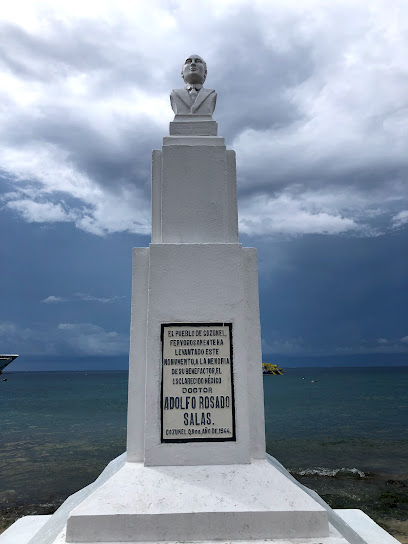
Isla San Miguel de Cozumel
Explore the vibrant underwater world and rich culture of Isla San Miguel de Cozumel, a breathtaking Caribbean paradise for adventurers and sun-seekers.
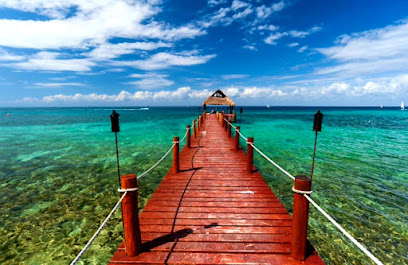
Mexican War Memorial
Explore the Mexican War Memorial in Cozumel, a historic tribute to the bravery of the past set in a vibrant island atmosphere.
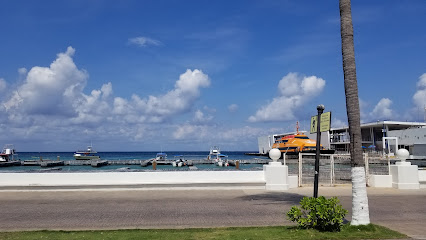
Letras Cozumel
Explore Letras Cozumel, a vibrant historical landmark in the heart of San Miguel, and capture unforgettable memories in this cultural gem.
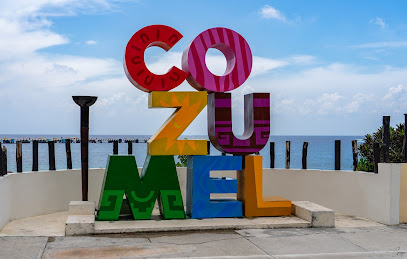
Cozumel Mexico
Discover the enchanting beauty of Cozumel, Mexico—a tropical paradise with stunning beaches, vibrant coral reefs, and rich cultural heritage.
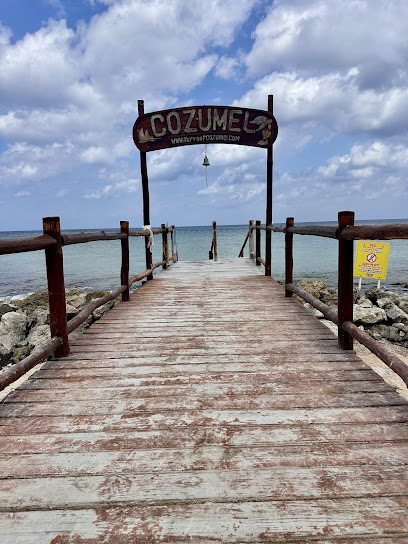
Unmissable attractions to see
Dolphinaris Cozumel
Explore the magic of marine life at Dolphinaris Cozumel, where unforgettable encounters with dolphins await in a stunning aquarium setting.
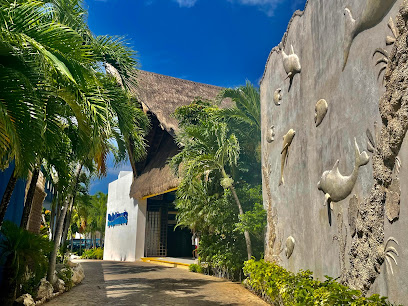
Atlantis Submarines Cozumel
Explore the vibrant underwater world of Cozumel with Atlantis Submarines, a unique and thrilling submarine adventure for all ages.
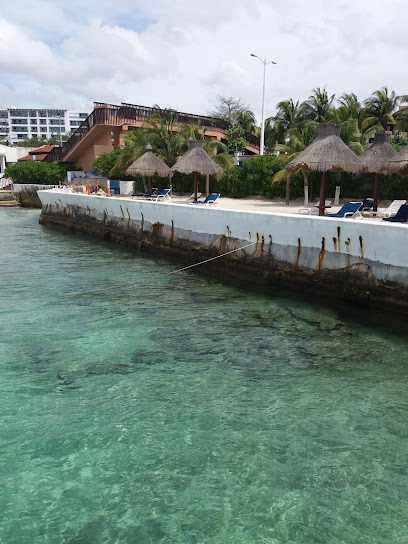
Cozumel Musem
Explore the vibrant history and culture of Cozumel at the Cozumel Museum, showcasing its wildlife, Mayan heritage, and ecological significance.
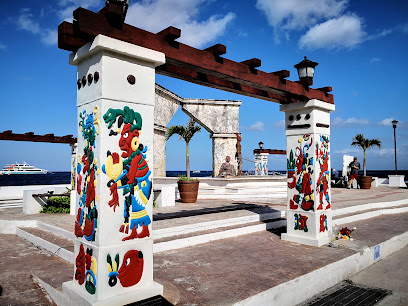
Planetario De Cozumel Cha'an Ka'an
Explore the cosmos at Planetario De Cozumel Cha'an Ka'an, an enchanting planetarium and observatory in Cozumel, Mexico, perfect for all ages.
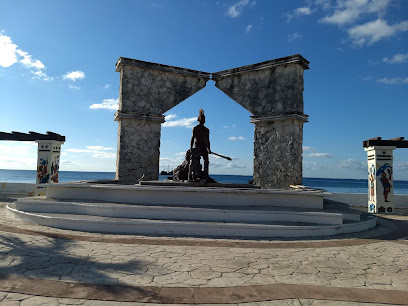
Cozumel Mexico
Explore the enchanting island of Cozumel, Mexico, where pristine beaches meet stunning coral reefs and vibrant local culture awaits.
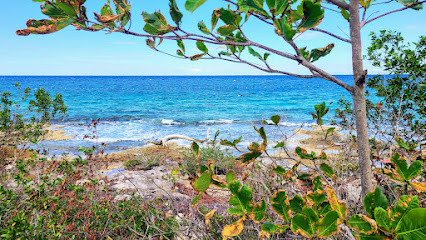
Essential places to dine
Casa Mission
Experience authentic Mexican cuisine at Casa Mission in Cozumel – where every meal tells a flavorful story.
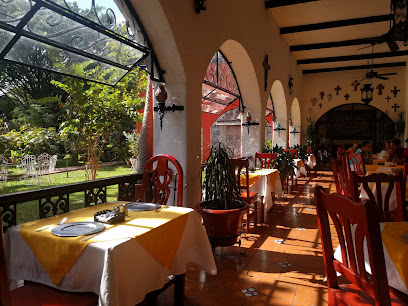
Guido's
Experience the perfect blend of Italian and Mexican cuisine at Guido's in Cozumel - a culinary delight not to be missed!
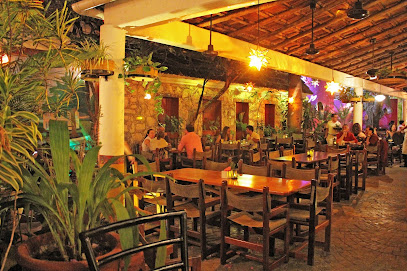
La Cocay
Discover the essence of Mediterranean cuisine at La Cocay, Cozumel's top-rated restaurant offering authentic Italian flavors in a charming setting.
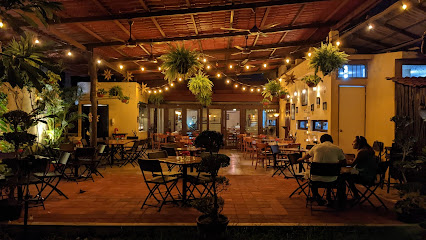
Kondesa
Discover the vibrant flavors of Mexico at Kondesa, Cozumel's premier seafood and Mexican restaurant offering fresh dishes in a lively atmosphere.
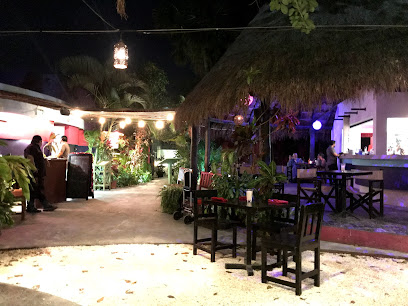
Ix Kool
Discover Ix Kool in Cozumel for an authentic Mexican dining experience featuring unique dishes crafted from fresh local ingredients.

Casa Cuzamil
Discover Casa Cuzamil in Cozumel: Enjoy delicious Mexican cuisine and fresh seafood in a vibrant atmosphere perfect for breakfast or casual dining.
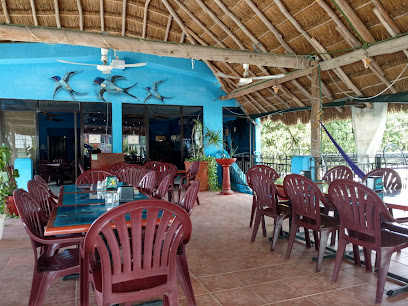
Lobster Shack
Discover Lobster Shack in Cozumel: A haven for seafood enthusiasts offering unique lobster dishes and refreshing margaritas in a vibrant setting.
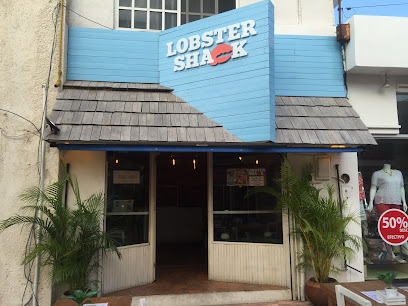
Three Amigos Cozumel
Discover authentic Tex-Mex flavors at Three Amigos Cozumel - where vibrant culture meets delicious cuisine in an unforgettable dining experience.
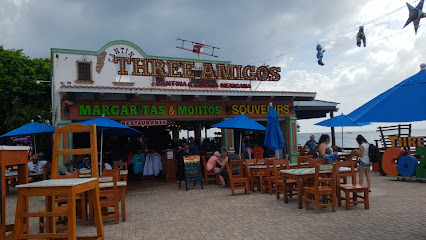
Colores y Sabores
Savor the authentic flavors of Mexico at Colores y Sabores in Cozumel – where every dish tells a story.
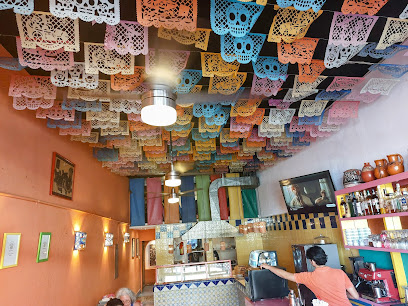
Diego's Taco
Experience authentic Mexican flavors at Diego's Taco in San Miguel de Cozumel - where every bite tells a story.
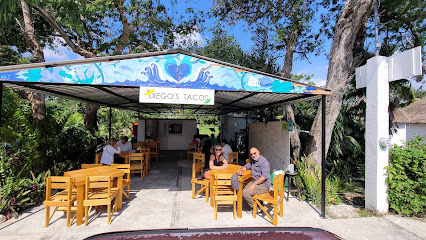
Markets, malls and hidden boutiques
Plaza Punta Langosta
Discover the vibrant Plaza Punta Langosta in Cozumel - a delightful shopping mall filled with unique souvenirs, dining options, and a lively atmosphere.
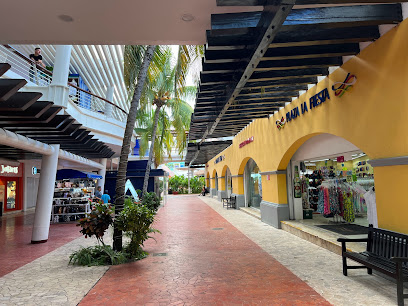
Royal Village Shopping Center
Explore the Royal Village Shopping Center in Cozumel for a vibrant shopping experience filled with local charm and international flair.
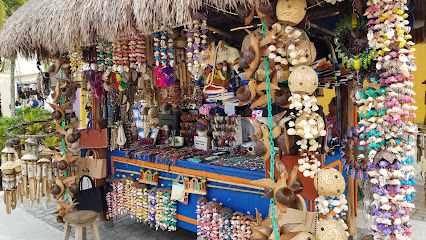
The Five Suns
Explore unique souvenirs, handmade crafts, and vibrant clothing at The Five Suns in Cozumel, a hub for authentic Mexican artistry.
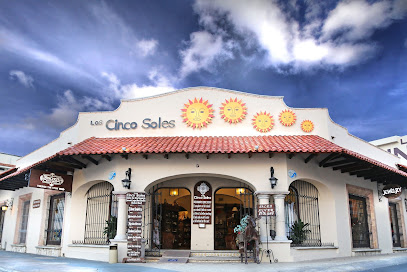
Sergio's Silver From Taxco
Discover exquisite handcrafted silver jewelry from Taxco at Sergio's Silver in Cozumel, a must-visit for jewelry lovers and cultural enthusiasts.
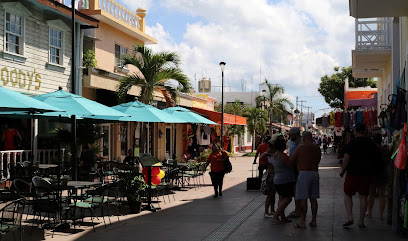
Kitty Shop
Explore the vibrant local crafts at Kitty Shop in Cozumel, the ideal destination for unique souvenirs that capture the spirit of the island.
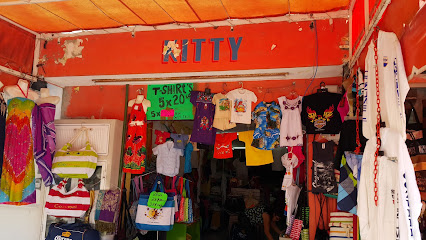
Artesanias Rosita's Shop
Explore the vibrant culture of Cozumel at Artesanias Rosita's Shop, where authentic crafts and souvenirs await every visitor.
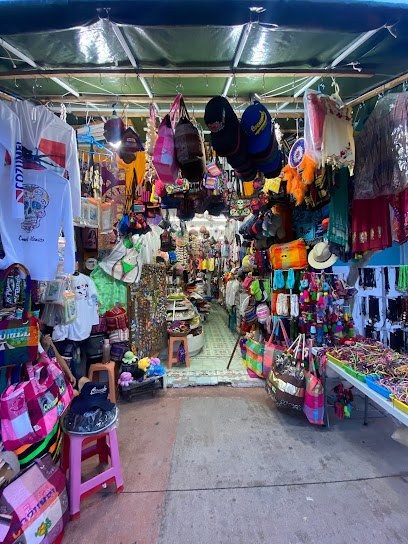
Elegance Store Boutique
Discover unique fashion and artisanal gifts at Elegance Store Boutique, the heart of shopping in Cozumel.
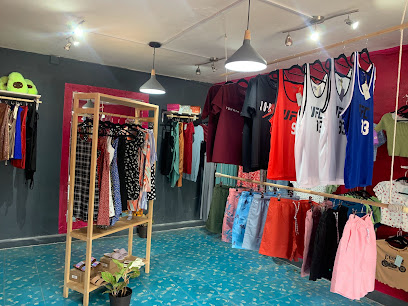
Cozumel Palace Gift Shop
Discover unique souvenirs and locally crafted treasures at Cozumel Palace Gift Shop, your one-stop destination for island memorabilia.
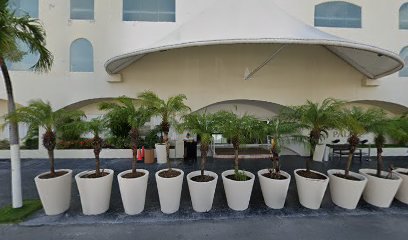
Mark Henry Boutique. Cozumel, MEXICO
Explore the finest jewelry at Mark Henry Boutique in Cozumel's Puerta Maya Shopping Mall, where elegance meets local artistry.
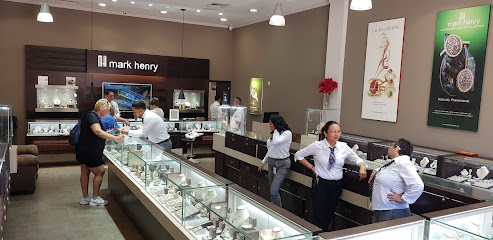
Guadeluppe's Boutique Store
Discover unique Mexican crafts and artisan souvenirs at Guadeluppe's Boutique Store in Cozumel, a must-visit for every traveler.
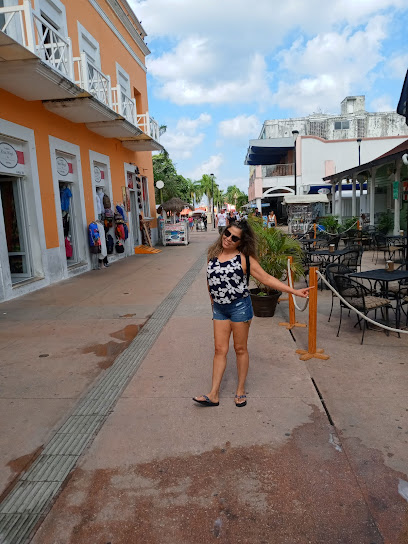
Essential bars & hidden hideouts
The Money Bar Beach Club
Experience the vibrant atmosphere, delicious cuisine, and stunning ocean views at The Money Bar Beach Club, Cozumel's ultimate beach destination.
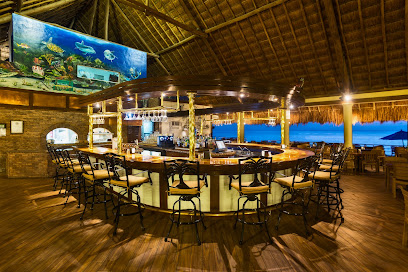
Hemingway Restaurant Beach & Nightclub Cozumel
Experience the best of Cozumel at Hemingway Restaurant Beach & Nightclub, where delectable brunch meets vibrant nightlife by the beach.
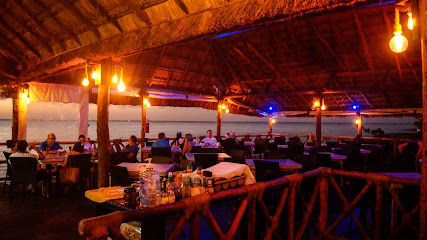
Thirsty Cougar
Experience the vibrant flavors of American and Mexican cuisine at Thirsty Cougar, Cozumel's premier cocktail bar offering a lively atmosphere and fresh seafood.
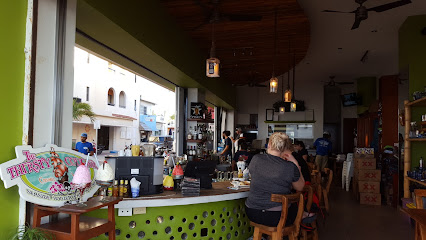
No Name Bar
Experience the vibrant nightlife of Cozumel at No Name Bar, where refreshing drinks and a lively atmosphere await every visitor.
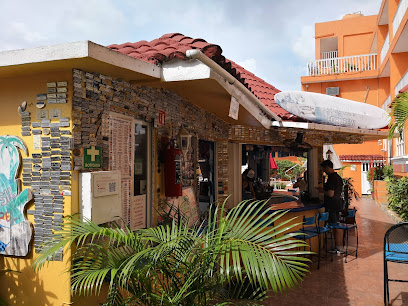
Tikila Bar
Discover Tikila Bar in Cozumel, a vibrant beachside bar offering tropical cocktails, stunning ocean views, and a lively atmosphere perfect for relaxation.
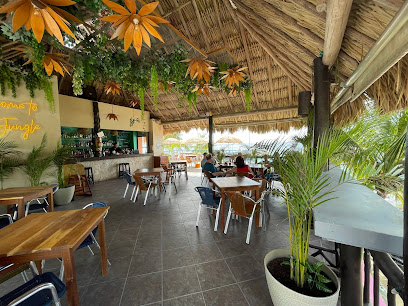
The Pub
Discover the culinary delights of The Pub in Cozumel, where Western flavors meet vibrant island culture for an unforgettable dining experience.
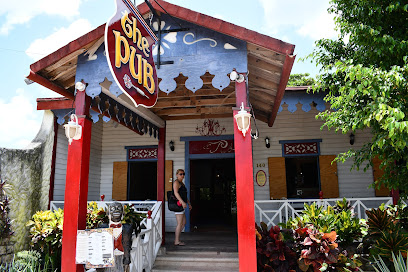
Mangalitos
Experience the vibrant nightlife at Mangalitos, Cozumel's beloved local bar offering a taste of traditional drinks and lively ambiance.
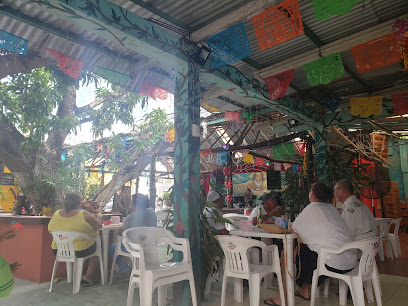
Agave cocktail bar
Explore the vibrant flavors of Mexico at Agave Cocktail Bar in Cozumel, where exceptional cocktails and authentic cuisine come together.
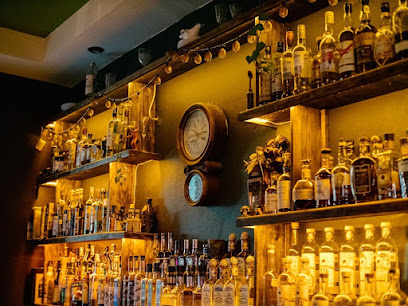
LAS BOYAS
Discover the vibrant nightlife of Cozumel at Las Boyas, where refreshing drinks and a lively atmosphere await you.
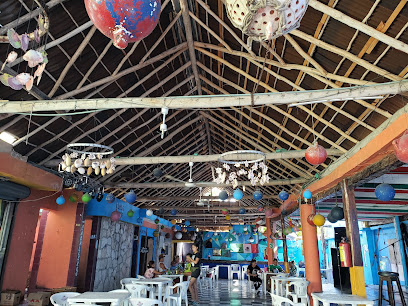
Destilería Cozumel
Experience the unique flavors of Cozumel at Destilería Cozumel, where innovative cocktails and traditional dishes come together in a vibrant setting.
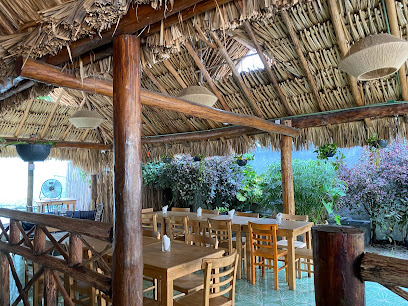
Local Phrases
-
- HelloHola
[oh-lah] - GoodbyeAdiós
[ah-dee-ohs] - YesSí
[see] - NoNo
[noh] - Please/You're welcomePor favor/De nada
[pohr fah-bohr/deh nah-dah] - Thank youGracias
[grah-see-ahs] - Excuse me/SorryPerdón/Lo siento
[pehr-dohn/loh see-ehn-toh] - How are you?¿Cómo estás?
[koh-moh ehs-tahs] - Fine. And you?Bien. ¿Y tú?
[byen. ee too] - Do you speak English?¿Hablas inglés?
[ah-blahs een-glehs] - I don't understandNo entiendo
[noh ehn-tyen-doh]
- HelloHola
-
- I'd like to see the menu, pleaseMe gustaría ver el menú, por favor
[meh goos-tah-ree-ah behr ehl meh-noo, pohr fah-bohr] - I don't eat meatNo como carne
[noh koh-moh kahr-neh] - Cheers!¡Salud!
[sah-lood] - I would like to pay, pleaseMe gustaría pagar, por favor
[meh goos-tah-ree-ah pah-gahr, pohr fah-bohr]
- I'd like to see the menu, pleaseMe gustaría ver el menú, por favor
-
- Help!¡Ayuda!
[ah-yoo-dah] - Go away!¡Vete!
[veh-teh] - Call the Police!¡Llama a la policía!
[yah-mah ah lah poh-lee-see-ah] - Call a doctor!¡Llama a un doctor!
[yah-mah ah oon dohk-tohr] - I'm lostEstoy perdido
[ehs-toy pehr-dee-doh] - I'm illEstoy enfermo
[ehs-toy ehn-fehr-moh]
- Help!¡Ayuda!
-
- I'd like to buy...Me gustaría comprar...
[meh goos-tah-ree-ah kohm-prahr...] - I'm just lookingSólo estoy mirando
[soh-loh ehs-toy meer-ahn-doh] - How much is it?¿Cuánto cuesta?
[kwan-toh kwehs-tah] - That's too expensiveEso es demasiado caro
[eh-soh ehs deh-mah-see-ah-doh kah-roh] - Can you lower the price?¿Puedes bajar el precio?
[pweh-dehs bah-hahr ehl pree-syoh]
- I'd like to buy...Me gustaría comprar...
-
- What time is it?¿Qué hora es?
[keh oh-rah ehs] - It's one o'clockEs la una
[ehs lah oo-nah] - Half past (10)Media (10)
[meh-dyah (deez] - MorningMañana
[mah-nyah-nah] - AfternoonTarde
[tahr-deh] - EveningNoche
[noh-cheh] - YesterdayAyer
[ah-yehr] - TodayHoy
[oy] - TomorrowMañana
[mah-nyah-nah] - 1Uno
[oo-noh] - 2Dos
[dohs] - 3Tres
[trehs] - 4Cuatro
[kwah-troh] - 5Cinco
[seen-koh] - 6Seis
[seys] - 7Siete
[syeh-teh] - 8Ocho
[oh-choh] - 9Nueve
[nwah-veh] - 10Diez
[dyehs]
- What time is it?¿Qué hora es?
-
- Where's a/the...?¿Dónde está...?
[dohn-deh ehs-tah] - What's the address?¿Cuál es la dirección?
[kwal ehs lah dee-rehk-syon] - Can you show me (on the map)?¿Puedes mostrarme (en el mapa)?
[pweh-dehs mohs-trar-meh (ehn ehl mah-pah)] - When's the next (bus)?¿Cuándo es el próximo (autobús)?
[kwan-doh ehs ehl proh-ksy-moh (ow-toh-boos)] - A ticket (to ....)Un boleto (a ...)
[oon boh-leh-toh (ah ...)]
- Where's a/the...?¿Dónde está...?
History of San Miguel
-
San Miguel's history is deeply rooted in the ancient Maya civilization, which flourished in the region from around 300 AD to 1500 AD. Although the main centers of Mayan culture were on the mainland, Cozumel was an important location for the Maya due to its strategic position in maritime trade routes and its proximity to sacred sites, including the Temple of Ix Chel on the island.
-
The arrival of Spanish conquistadors in the early 16th century marked a significant turning point for San Miguel. In 1518, Juan de Grijalva was one of the first Europeans to encounter Cozumel. The island was subsequently colonized, and San Miguel began to develop as a port town. The Spanish influence led to the establishment of Catholic missions, which aimed to convert the indigenous population and promote Spanish culture.
-
During the 19th century, San Miguel evolved into a bustling port town, serving as a key stopover for trade routes between the mainland and other Caribbean islands. The establishment of commercial activities, including the export of coconuts and the import of goods from Europe and the United States, contributed to the town's growth and economic stability.
-
In the 20th century, particularly from the 1960s onwards, San Miguel began to transition from a traditional fishing and trading town to a tourist destination. The beautiful beaches, coral reefs, and rich cultural heritage attracted visitors from around the world. This shift spurred infrastructure development, including hotels, restaurants, and recreational activities, while also preserving elements of the local culture.
-
San Miguel is known for its vibrant cultural celebrations, such as the annual Carnival and the Fiesta de San Miguel, which honors the town's patron saint. These events showcase traditional music, dance, and local cuisine, reflecting the unique blend of indigenous and Spanish influences that characterize the area's cultural identity. The town's art scene has also flourished, with galleries and workshops highlighting the work of local artisans.
San Miguel Essentials
-
San Miguel is the main town of Cozumel and is easily accessible from other neighborhoods. If you're arriving from the airport, taxis and shuttles are available that can take you directly to San Miguel in about 15-20 minutes. From areas like Punta Morena or Playa Mia, local taxis or rental cars are the quickest option, taking approximately 20-30 minutes depending on traffic. Bicycles can also be rented from various shops, providing a scenic ride along the coast to reach San Miguel.
-
San Miguel is a walkable area, with many attractions, shops, and restaurants located within close proximity. For longer distances, local taxis are readily available and can be flagged down easily. Bicycles are a popular choice for tourists and can be rented from numerous shops; cycling is a great way to explore the waterfront and nearby beaches. While public buses do operate in Cozumel, they are less common in San Miguel, so taxis and bicycles are often preferred.
-
San Miguel is generally safe for tourists, with a visible police presence. However, it's wise to exercise caution, especially in less crowded areas or at night. Avoid displaying valuables and be vigilant in crowded places to prevent petty theft. Areas to be cautious of include the outskirts of the town, particularly late at night. Always use reputable taxis and avoid walking alone in poorly lit areas.
-
In case of an emergency, dial 911 for police, medical, or fire services. There are hospitals and clinics in San Miguel, with the largest being the Cozumel General Hospital. Make sure to have travel insurance that covers medical emergencies. For minor health issues, pharmacies are widely available and often have English-speaking staff.
-
Fashion: Do wear lightweight, breathable clothing suitable for warm weather. Don’t wear swimwear away from the beach. Religion: Do respect local customs; cover shoulders and knees when visiting churches. Public Transport: Do be polite to drivers and fellow passengers. Don’t eat or drink in public transport. Greetings: Do greet locals with a friendly 'Hola' and a smile. Eating & Drinking: Do try local dishes at street vendors. Don’t drink tap water; opt for bottled water instead.
-
To experience San Miguel like a local, explore the local markets, such as Mercado Municipal, where you can sample authentic cuisine and buy handmade crafts. Engage with local residents; they are often willing to share insights about the culture and history of Cozumel. Attend local festivals and events to immerse yourself in the vibrant community spirit. For a unique experience, consider joining a cooking class to learn how to prepare traditional Mexican dishes.
Nearby Cities to San Miguel
-
Things To Do in Playa del Carmen
-
Things To Do in Tulum
-
Things To Do in Cancun
-
Things To Do in Corozal Town
-
Things To Do in San Pedro
-
Things To Do in Orange Walk Town
-
Things To Do in Caye Caulker
-
Things To Do in Belize City
-
Things To Do in Campeche
-
Things To Do in Dangriga
-
Things To Do in Hopkins
-
Things To Do in San Ignacio
-
Things To Do in Tikal
-
Things To Do in Roatán
-
Things To Do in Placencia











